Governor McDonnell's pronouncement of Confederate History Month deserves unending scorn because he pandered to the Sons of Confederate Veterans and other groups that are akin to holocaust deniers. His proclamation skipped over slavery as the underlying cause for war and was clearly aimed at a largely uneducated white majority. McDonell's outrage renders his subsequent apology unworthy of consideration.
Perpetrators of the great southern lie - for it is only in the south that we find those who trade in the "War of Northern Aggression" and related nonsense - suspend disbelief to argue every possible excuse. They either lack critical thinking skills or, blinded by other dogmas such as biblical literalism, suppress the very skills that serve their professional life to propagate coded racism. An example of "educated denialism" is synopsized here...http://georgiaheritagecouncil.org/site2/commentary/scruggs-causes-uncivil-war030607.phtml and background on the author (Mike Scruggs) can be found here..http://www.markwhiteusa.com/AboutUs.html.
There were many proximate causes of the Civil War and each one is threaded to one, and only one, central issue. The proof is a simple question: if slavery had not existed, would there have been a war? Among all proximate causes, my two favorites are: weak Federal treasury, exemplified by lack of a national currency; the out-sized influence of abolitionists on northern politics. The premise for the importance of these two factors is: the inseparability of slave labor with the southern economy; and, another simple question: what other country had a slavery problem, and how was it solved?
The central problem leading up to the war was political paralysis. The underlying disease was slavery. This is a cautionary tale for our current climate of instant polarization. Abolitionists succeeded in painting slavery with a brush dipped in pure moral tones. Southerners heard a quite different message. Slaves were not only the source of most southern income; they also comprised its largest asset class. Slaves were so important to the southern economy that an insurance market sprang up around them (http://www.insurance.ca.gov/0100-consumers/0300...). The southern ruling class heard a moral position and responded in kind, giving birth to the great southern lie.
The intractability of issue becomes clear if you consider how possible loss of slave capital was perceived to also imperil other forms of capital, such as the value of plantations, and that the southern ruling class was diametrically opposed to free labor. About the only thing more distasteful than the risk of losing slave capital was the notion of an empowered class of previously servile, poor whites. The southern ruling class viewed possible loss of virtually all of their capital and income through an narrow ideological prism. Proof of their pre-war view is found in their post-Reconstruction behavior. The slave economy was re-established in all but name and majority of whites lived the same disadvantaged existence as before the war.
In hindsight, Federal purchase and emancipation of southern slaves might have been a viable alternative. The southern ruling class would have lost their primary motivation to fight (loss of capital) and then, forced to negotiate on less ideological ground, the north would have been in better position to leverage southern white underclass resentment into a political force. Reasons why this couldn't happen include abolitionist success in framing the northern argument and a weak Federal treasury. It was the Civil War that enabled (or forced) creation of our national currency.
Perpetrators of the great southern lie - for it is only in the south that we find those who trade in the "War of Northern Aggression" and related nonsense - suspend disbelief to argue every possible excuse. They either lack critical thinking skills or, blinded by other dogmas such as biblical literalism, suppress the very skills that serve their professional life to propagate coded racism. An example of "educated denialism" is synopsized here...http://georgiaheritagecouncil.org/site2/commentary/scruggs-causes-uncivil-war030607.phtml and background on the author (Mike Scruggs) can be found here..http://www.markwhiteusa.com/AboutUs.html.
There were many proximate causes of the Civil War and each one is threaded to one, and only one, central issue. The proof is a simple question: if slavery had not existed, would there have been a war? Among all proximate causes, my two favorites are: weak Federal treasury, exemplified by lack of a national currency; the out-sized influence of abolitionists on northern politics. The premise for the importance of these two factors is: the inseparability of slave labor with the southern economy; and, another simple question: what other country had a slavery problem, and how was it solved?
The central problem leading up to the war was political paralysis. The underlying disease was slavery. This is a cautionary tale for our current climate of instant polarization. Abolitionists succeeded in painting slavery with a brush dipped in pure moral tones. Southerners heard a quite different message. Slaves were not only the source of most southern income; they also comprised its largest asset class. Slaves were so important to the southern economy that an insurance market sprang up around them (http://www.insurance.ca.gov/0100-consumers/0300...). The southern ruling class heard a moral position and responded in kind, giving birth to the great southern lie.
The intractability of issue becomes clear if you consider how possible loss of slave capital was perceived to also imperil other forms of capital, such as the value of plantations, and that the southern ruling class was diametrically opposed to free labor. About the only thing more distasteful than the risk of losing slave capital was the notion of an empowered class of previously servile, poor whites. The southern ruling class viewed possible loss of virtually all of their capital and income through an narrow ideological prism. Proof of their pre-war view is found in their post-Reconstruction behavior. The slave economy was re-established in all but name and majority of whites lived the same disadvantaged existence as before the war.
In hindsight, Federal purchase and emancipation of southern slaves might have been a viable alternative. The southern ruling class would have lost their primary motivation to fight (loss of capital) and then, forced to negotiate on less ideological ground, the north would have been in better position to leverage southern white underclass resentment into a political force. Reasons why this couldn't happen include abolitionist success in framing the northern argument and a weak Federal treasury. It was the Civil War that enabled (or forced) creation of our national currency.
This isn't an exercise in "presentism". Northern politicians had a fresh example for possibly preempting war with purchase/emancipation. A successful national government program to do exactly that was concluded 20 years before South Carolina initiated hostilities. The British parliament passed the Slavery Abolition Act in 1833. The Act provided terms of government purchase for all slaves in Britain, but not in all British possessions. The British government funded a seven year purchase/emancipation with 20 million pounds. The Act took effect in 1834 and by 1841 slavery in Britain was history.
The two core differences in Britain's experience were: (1) acceptance of slavery's economic reality, as opposed to polarizing moral arguments; (2) a strong government treasury. The counter argument to this view is that slavery was less important to the British economy than it was in the American south. That's true and is illustrated by the Act's limitations. However, such view does not consider how a similar solution could have been adopted in America with, for example, a longer emancipation period. Plus, 20 million pounds wasn't exactly chump change in 1833. The British program shows that war wasn't necessarily a foregone conclusion.
In fairness to the reason why historic inquiry is so important, the "moral vs. economic" argument should also be studied in context of northern culture and subsequent events. With very few exceptions, Abolitionists were racist. Northern blacks were an intensely segregated northern minority and the notion of free blacks possibly moving north was an anathema to the northern majority. This was the period also characterized by intense animosity towards Irish immigrants. Fifty-two years after Appomattox, The Great War caused an unprecedented labor market vacuum that accelerated the Great Migration. White reaction in northern (or non-southern) states to growing black population mirrored southern atrocities. One can argue the southern-ness of Tulsa but few would call Detroit anything but northern.
The "moral vs. economic" argument is useful for widening the debate. It does not posit an alternative past in which peace could have been simply bought with a fat cheque. It does argue for complete inquiry, with all truths dragged into the light of day. Exploration of northern culture would provide necessary balance, however, the final conclusion would remain inescapable.
Slavery caused the war.








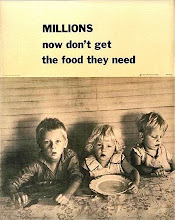


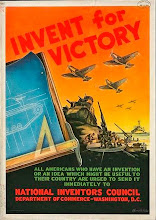

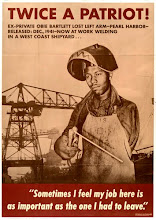
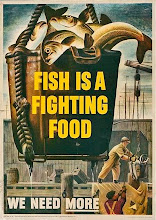
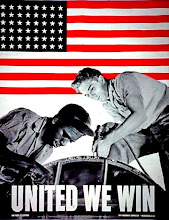



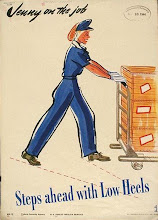
+breed+danger+6x8.jpg)
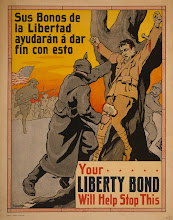


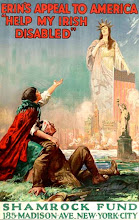
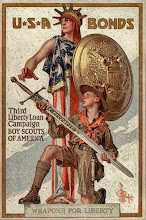



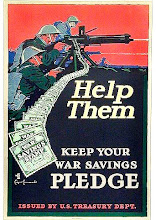
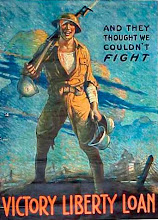

+5x7.jpg)


No comments:
Post a Comment